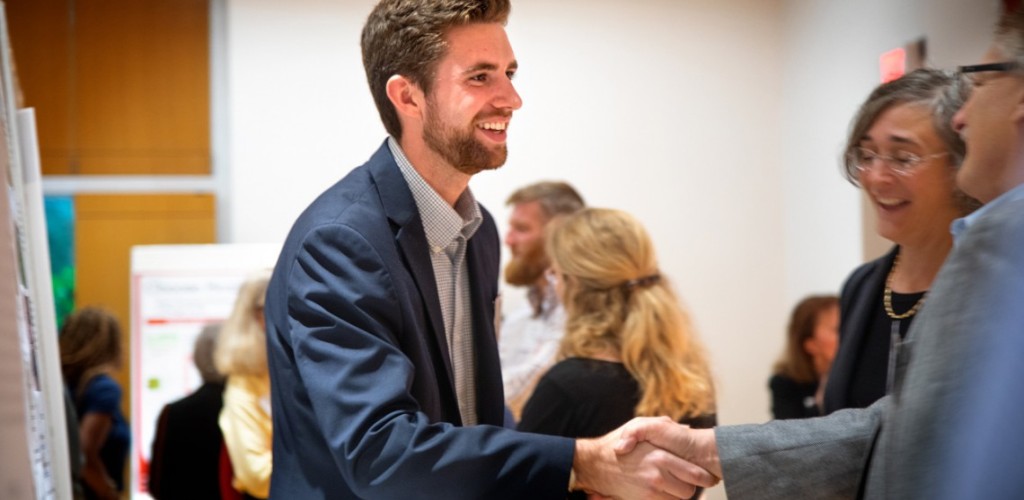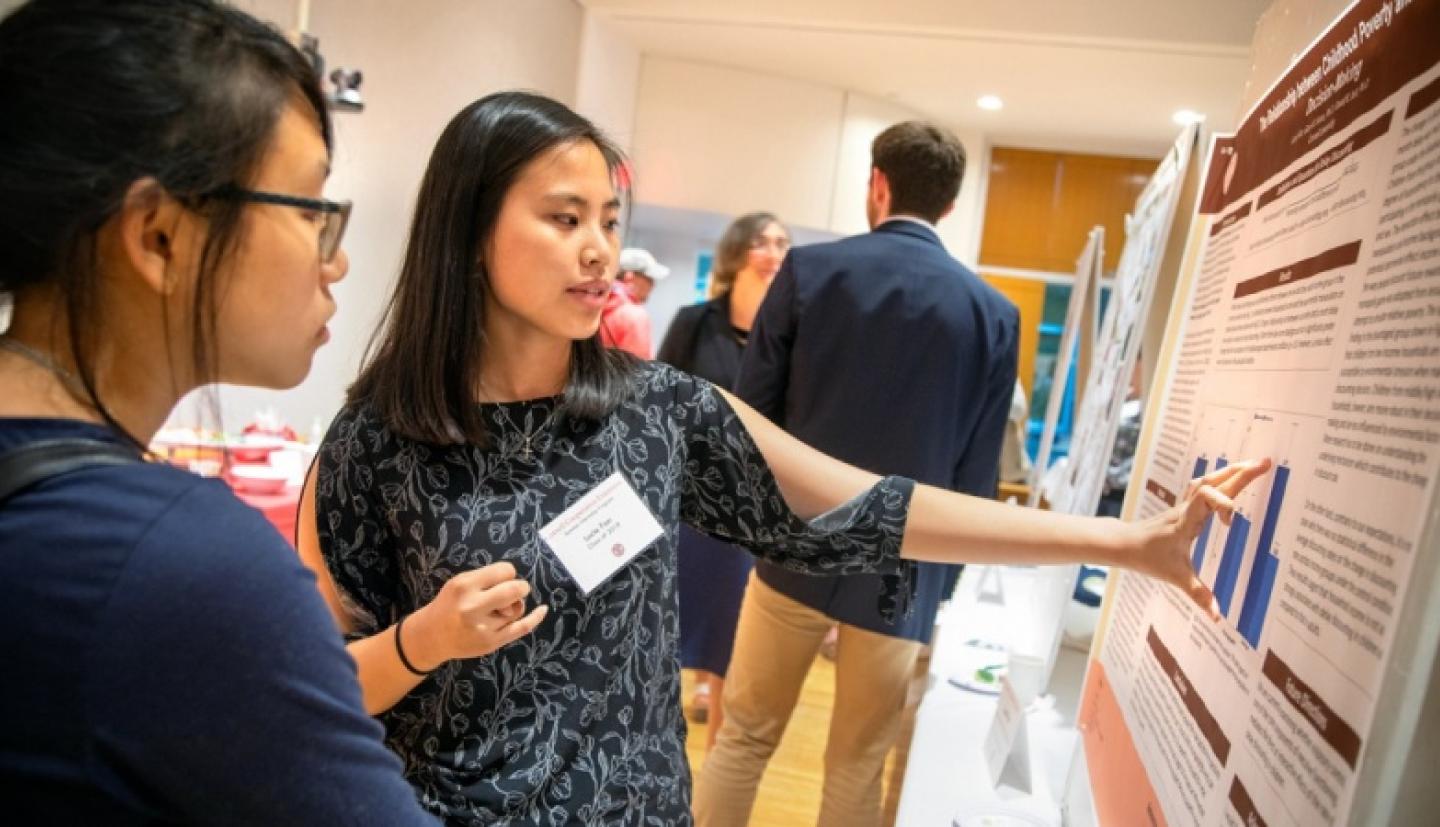From New York City and Long Island to western New York and the north country, 28 Cornell undergraduates spent their summer making a Big Red impression all across the Empire State.
As part of the Cornell Cooperative Extension (CCE) internship program, the students gained valuable applied research experience while helping to fill the essential role Cornell plays in New York communities as the state’s land-grant university.
The 2018 internship projects, proposed by faculty and staff from the College of Human Ecology (CHE) and the College of Agriculture and Life Sciences (CALS), ranged from tick management and local food communications to mapping opioid addiction resources and helping farmers respond to climate change. Faculty members and CCE educators oversaw and supported the projects while students administered them from local CCE offices.
“That dynamic allows students to grow academically while experiencing the breadth and depth of the work that Cornell and CCE do across the state,” said CCE Director Chris Watkins at extension’s internship reception, Sept. 21 at the Biotechnology Building. “Student engagement with communities also enhances the campus and county relationships that are so critical both for Cornell and for CCE.”
Kim Kopko, CHE associate director of extension and outreach and CCE associate director, was faculty adviser for three interns this summer.
“The ideal internship experience for the students and the communities is one that yields a shared learning experience,” she said. “For the student, this includes immersion in the culture, issues and potential challenges facing a community, and implementing the project objectives with an understanding of the specific community context. For the community, it means having their needs understood by an intern who brings a community-based, applied educational lens to issues and challenges.”
Said CHE interim dean Rachel Dunifon: “I’ve had the opportunity to work with several CCE interns over the years on research and outreach projects in the area of family development and parent education. I have seen those students go on to do great things – and each told me how crucial their internship experience was in forming their current path.”
Tyler Brewer ’19, an environmental and sustainability sciences major, isn’t exactly sure where his post-Cornell path will lead. But he’s positive the 10 weeks he spent with CCE of Madison County will have shaped his outlook and approach to working with others.
Collaborating with the Cornell Institute for Climate Smart Solutions, Brewer concluded his project by developing and sharing an easy-to-follow tip sheet with and for farmers, to help them adapt to climate-related issues. To build the tip sheet, Brewer visited more than 20 Madison County farms and organized events that brought together farmers, community members and Cornell researchers.
“Connecting with farmers and participating in the two-way street that is CCE’s applied-research model was my favorite part,” said Brewer. “In those conversations, we got past the typical political discussion points of climate change and were able to drill down to basic need-based adaptation solutions.”
Karin Bump, CCE Madison executive director, believes Brewer’s project and presence will have a lasting impact in her county. “Tyler was professional, relatable and completely engaged with our community,” she said. “He allowed our farmers to see the value Cornell and CCE bring to local agriculture.”
Jane Kim ’19, a computer science major, spent her internship in Ithaca learning how to create and share 360-degree video experiences to raise awareness about local foods. Her goal was to learn a new skill while teaching community members about the farms where that food comes from.
“Even though at the beginning I was a novice at handling 360-degree cameras, as well as stitching and editing videos, I realized with time and practice I could overcome these challenges,” she said. “I also realized that even though I had been at Cornell for three years, I knew very little about the places that lie outside of campus. The CCE internship allowed me to take a big first step in using my skills to support the community where I live.”






